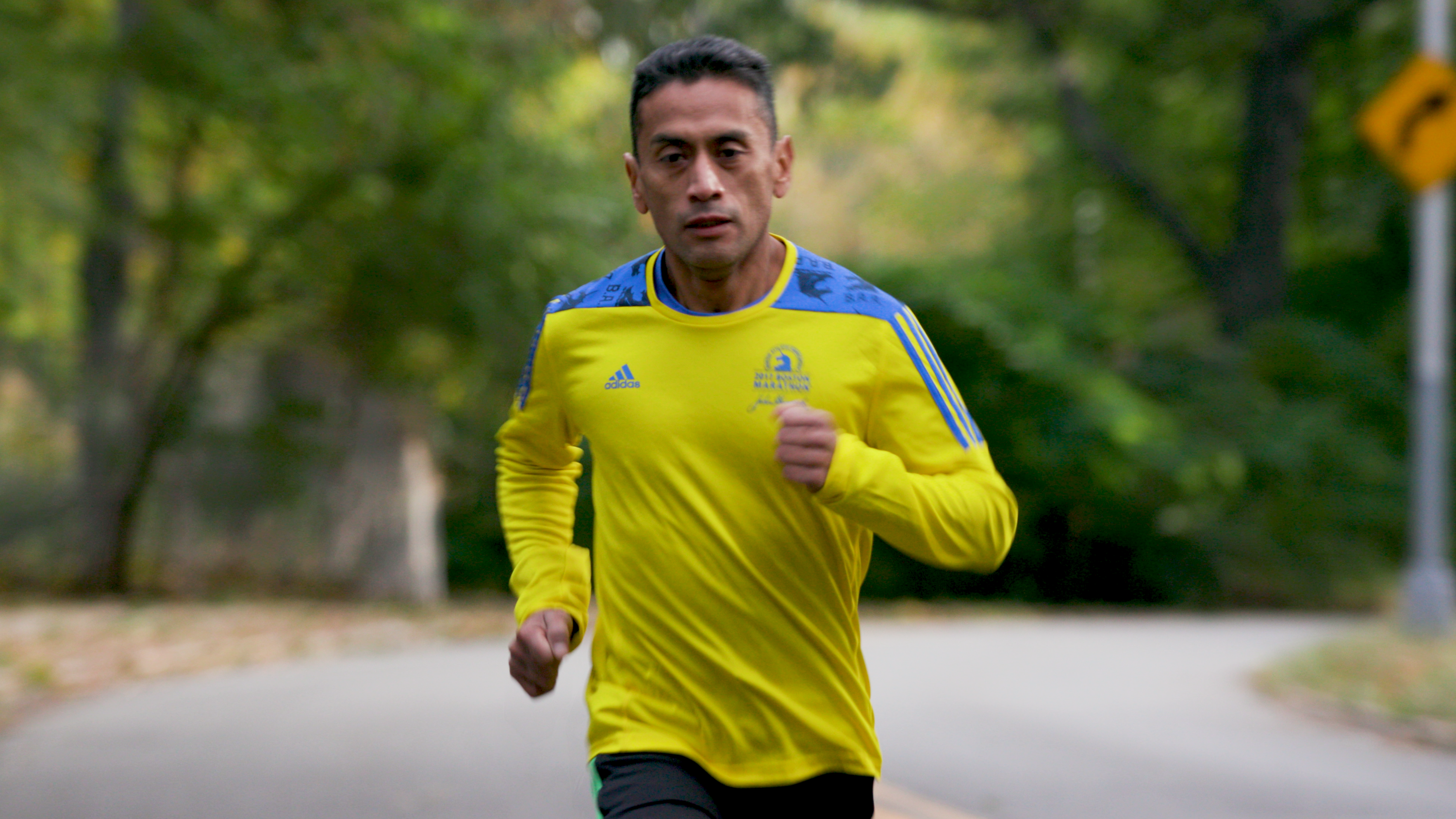Boost Your Child’s Basketball Journey: Expert Tips for Parental Support!
( If you purchase through our sponsored links, we may receive a small commission at no extra cost to you )
Parents can support their child in youth basketball programs by attending games and practices regularly and providing moral and emotional support. Youth basketball programs offer a great opportunity for children to develop their skills and passion for the sport.
As a parent, your role in supporting your child in these programs goes beyond just dropping them off and picking them up. By actively attending their games and practices, you show them that their participation matters to you. Your presence also allows you to provide much-needed moral and emotional support, cheering them on and celebrating their achievements.
This support not only enhances their motivation but also builds their self-confidence. We will explore some practical ways parents can support their child in youth basketball programs, ensuring a positive and rewarding experience for both the child and the parent.

Credit: www.cnn.com
1. Understanding The Importance Of Parental Support In A Child’s Basketball Journey
In a child’s basketball journey, parental support plays a crucial role in their overall development. Parents have the power to shape their child’s experience in youth basketball programs, influencing their motivation, confidence, self-esteem, discipline, and work ethic. By providing the right kind of support, parents can help their child navigate the challenges and reap the benefits of participating in basketball. Let’s explore the different aspects of parental support and how they can make a significant impact on a child’s basketball journey.
1.1 Enhancing Motivation And Passion
One of the key roles parents can play is to enhance their child’s motivation and passion for basketball. For a young player, staying motivated is crucial as they face numerous ups and downs throughout their basketball journey. Parents can create a supportive environment by:
- Attending their child’s games and practices, showing genuine interest and enthusiasm
- Being positive and encouraging, regardless of the game’s outcome
- Setting realistic goals and celebrating achievements along the way
- Helping their child see the fun and enjoyment in playing basketball
- Recognizing their child’s efforts and hard work
1.2 Building Confidence And Self-esteem
Confidence and self-esteem are crucial for a young basketball player. Parents can play a significant role in building their child’s confidence by:
- Providing constructive feedback that focuses on their child’s strengths
- Never comparing their child to others but emphasizing personal growth
- Encouraging risk-taking and embracing challenges
- Teaching their child to learn from mistakes and bounce back stronger
- Being a supportive shoulder to lean on during setbacks
1.3 Instilling Discipline And Work Ethic
In basketball, discipline and work ethic are essential qualities that contribute to a player’s success. Parents can instill these qualities in their child by:
- Setting a good example by demonstrating discipline and hard work in their own lives
- Establishing routines and schedules for basketball practices and other commitments
- Teaching time management skills to balance academics and basketball
- Encouraging their child to give their best effort in every practice and game
- Helping their child understand the value of perseverance and dedication
By understanding and providing the necessary support in these areas, parents can make a positive impact on their child’s basketball journey. Remember, parental support goes beyond just cheering from the sidelines. It involves actively participating, nurturing their child’s passion, boosting their confidence, and instilling discipline and work ethic. Together, parents and their young basketball players can create a fulfilling and rewarding experience.

Credit: www.cnn.com
2. Effective Ways For Parents To Support Their Child’s Basketball Progress
As parents, it is natural to want to support and encourage your child’s progress in their youth basketball program. However, finding the right balance between support and pressure can sometimes be a challenging task. It is important to remember that ultimately, your child’s basketball journey should be a positive and enjoyable experience. In this section, we will explore effective ways for parents to support their child’s basketball progress in a healthy and constructive manner.
2.1 Finding The Right Balance Between Support And Pressure
One of the most crucial aspects of supporting your child in their basketball endeavors is finding the right balance between support and pressure. While it is essential to show interest and provide guidance, placing excessive pressure on your child can lead to stress and anxiety, ultimately hindering their overall progression. Remember to prioritize your child’s enjoyment and passion for the game over unrealistic expectations.
2.2 Providing Emotional Support And Encouragement
In youth basketball, a child may encounter moments of frustration and disappointment. As their parent, providing emotional support and encouragement can make a world of difference in their development. Acknowledge their efforts, celebrate their achievements, and offer reassurance during challenging times. By fostering a positive and nurturing environment, you can help your child build resilience and maintain their motivation to improve.
2.3 Creating A Structured Practice And Training Routine
A structured practice and training routine is essential for your child’s basketball progress. Collaborate with their coach to create a schedule that balances skill development, conditioning, and rest. Additionally, ensure your child is equipped with the necessary equipment and facilities to enhance their training experience. This routine will not only instill discipline but also allow your child to consistently work on their basketball skills.
2.4 Fostering A Positive And Healthy Competitive Mindset
In a competitive sport like basketball, it is important to foster a positive and healthy competitive mindset in your child. Encourage them to set realistic goals, embrace challenges, and learn from both successes and failures. Help them understand that competition is about personal growth and teamwork rather than solely winning or losing. By instilling a healthy perspective on competition, you can contribute to your child’s overall development on and off the basketball court.
2.5 Encouraging Physical And Mental Well-being
To excel in basketball, a child’s physical and mental well-being should be prioritized. Encourage your child to engage in activities that complement their basketball training, such as regular exercise, proper nutrition, and sufficient rest. Additionally, emphasize the significance of mental well-being by promoting mindfulness techniques and stress management strategies. By nurturing their overall health and well-being, you can support your child’s basketball progress in a holistic and sustainable manner.
3. Navigating Challenges And Potential Pitfalls In Parental Involvement
When it comes to supporting your child in their youth basketball program, there are various challenges and pitfalls that parents need to navigate. While it is crucial to be involved and provide support, parents must also be mindful of certain issues that can arise. By understanding how to deal with performance pressure, manage conflicts with coaches, balance academics and sports commitments, and recognize burnout and overtraining, parents can ensure a positive and beneficial experience for their child.
3.1 Dealing With Performance Pressure And Expectations
One common challenge in youth basketball programs is the performance pressure and expectations that both parents and children may feel. It is essential for parents to create a supportive environment that focuses on effort, improvement, and enjoyment rather than solely on winning or individual achievements.
Here are a few strategies parents can employ when dealing with performance pressure:
- Encourage your child to set realistic goals and celebrate small victories.
- Emphasize the importance of teamwork and cooperation over individual success.
- Remind your child that mistakes are a part of the learning process and encourage them to embrace challenges.
- Avoid putting excessive pressure on your child and instead, focus on creating a positive and enjoyable experience.
3.2 Managing Conflicts And Communication With Coaches
Another challenge parents may encounter is managing conflicts and maintaining effective communication with coaches. Open and respectful communication is key to addressing and resolving any conflicts that may arise.
Consider the following tips to ensure a healthy relationship with your child’s coach:
- Approach conversations with coaches calmly and respectfully.
- Listen attentively to the coach’s perspective and be open to their feedback.
- Address any concerns or conflicts directly with the coach rather than sharing them with other parents.
- Understand and respect the coach’s decisions and strategies, even if they differ from your expectations.
3.3 Balancing Academics And Sports Commitments
The juggling act between academics and sports commitments is another challenge parents may face. It is essential to prioritize education while still supporting your child’s passion for basketball.
Consider these tips for finding the right balance:
| Tip | Description |
|---|---|
| Establish a study schedule | Create a routine that allows for dedicated study time and helps your child manage their workload effectively. |
| Communicate with teachers | Keep teachers informed about your child’s sports commitments so that they can provide support and flexibility when needed. |
| Prioritize and manage time | Encourage your child to prioritize their tasks and manage their time efficiently to ensure they can meet both academic and sports commitments. |
3.4 Recognizing And Addressing Burnout And Overtraining
Burnout and overtraining can occur when young athletes are subjected to excessive physical and mental demands. Parents need to be vigilant in recognizing the signs of burnout and addressing them promptly.
Here are some signs of burnout to watch out for:
- Decreased enthusiasm or enjoyment towards basketball
- Persistent fatigue and physical exhaustion
- Changes in sleep patterns or appetite
- Decline in academic performance
If you notice any signs of burnout in your child, take these steps to address the issue:
- Encourage rest and relaxation
- Discuss the situation openly with your child and listen to their concerns
- Reevaluate the schedule and commitments to create a more balanced approach
- Seek professional advice if necessary
By proactively identifying and addressing these challenges and potential pitfalls, parents can provide the necessary support and guidance to help their child thrive in their youth basketball program.
:max_bytes(150000):strip_icc()/Parents-BTS-New-Kid-Stocksy-78589-3379389eaf2a47a8a9048c3f61d3091c.jpg)
Credit: www.parents.com
Frequently Asked Questions On How Can Parents Support Their Child In Youth Basketball Programs?
How Can I Help My Kid In Basketball?
Support your child in basketball by providing them with consistent practice, encouraging them to join a team, finding a qualified coach, emphasizing the importance of fitness, and attending their games to show support.
How Can Parents Support Their Child In Sports?
Parents can support their child in sports by attending their games, providing encouragement and emotional support, and being involved in their training and practice. They can also help with equipment, transportation, and ensuring a healthy diet and rest. Additionally, parents should prioritize their child’s enjoyment and growth rather than focusing solely on winning.
What Role Should Parents Play In The Athletic Care Of Their Children?
Parents should play an essential role in the athletic care of their children. They should provide support, encouragement, and guidance to ensure their children’s well-being and success. This includes attending games, providing nutritious meals, promoting proper sleep, and helping with training and recovery.
What Role Should Parents Play In The Youth Sports Experience?
Parents should play an active role in their child’s sports experience. They should provide support and encouragement, attend games, and show interest in their child’s participation. Parents should also emphasize sportsmanship, teamwork, and fun rather than solely focusing on winning or performance.
Conclusion
To summarize, supporting your child in youth basketball programs requires active involvement and the utilization of various strategies. Encourage their passion, provide emotional support, and seek out knowledgeable coaches who can guide them in their journey. Additionally, prioritize their well-being by promoting a healthy balance between academics, social life, and sports.
By fostering a positive environment, you can help your child develop their skills, boost their confidence, and enjoy a fulfilling basketball experience.


